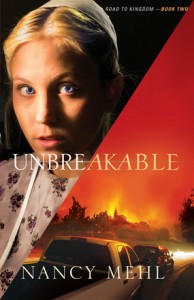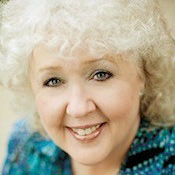 It is time for a FIRST Wild Card Tour book review! If you wish to join the FIRST blog alliance, just click the button. We are a group of reviewers who tour Christian books. A Wild Card post includes a brief bio of the author and a full chapter from each book toured. The reason it is called a FIRST Wild Card Tour is that you never know if the book will be fiction, non~fiction, for young, or for old…or for somewhere in between! Enjoy your free peek into the book!
It is time for a FIRST Wild Card Tour book review! If you wish to join the FIRST blog alliance, just click the button. We are a group of reviewers who tour Christian books. A Wild Card post includes a brief bio of the author and a full chapter from each book toured. The reason it is called a FIRST Wild Card Tour is that you never know if the book will be fiction, non~fiction, for young, or for old…or for somewhere in between! Enjoy your free peek into the book!
You never know when I might play a wild card on you!
Jerry Eicher’s bestselling Amish fiction (more than 210,000 in combined sales) includes The Adams County Trilogy, the Hannah’s Heart books, and the Little Valley Series. After a traditional Amish childhood, Jerry taught for two terms in Amish and Mennonite schools in Ohio and Illinois. Since then he’s been involved in church renewal, preaching, and teaching Bible studies. Jerry lives with his wife, Tina, and their four children in Virginia.
Visit the author’s website.
 Jerry Eicher (nearly half a million copies sold) returns with the first book in another of his delightful series centering on Amish life.
Jerry Eicher (nearly half a million copies sold) returns with the first book in another of his delightful series centering on Amish life.
Here is the story of a young Amish girl, Katie Raber, who finds she wants more from life than to be known as simply “Emma Raber’s daughter.”
Product Details:
List Price: $13.99
Paperback: 336 pages
Publisher: Harvest House Publishers (February 1, 2013)
Language: English
ISBN-10: 0736952519
ISBN-13: 978-0736952514
AND NOW…THE FIRST CHAPTER:
The early morning sun was rising over the well-kept farms of Delaware’s Amish country as Katie Raber drove her buggy toward Byler’s Store near Dover to begin her day’s work. She squinted when she spotted an approaching buggy in the distance. The horse had its neck arched high in the air. Katie didn’t have to think long before she decided who was coming toward her. Ben Stoll would be holding the reins. It was his buggy. She was sure of that. Ben was one of the best-looking Amish boys around. Blessed was any girl who was invited to ride with him in his buggy—something Katie figured she would never experience. Ben was without a doubt the catch among the community’s Amish young men. A cloud crossed the sun, and Katie held the buggy lines tight as she kept her eyes glued on the approaching buggy. Perhaps she could catch a glimpse of Ben this morning. That was all she could hope for. He was from another world. Ben never spoke to her, and she only saw him at the Sunday meetings and the Amish youth gatherings Mamm allowed her to attend. There he would be laughing and talking with someone else—someone more suited to his taste than “plain Katie,” the out-of-step daughter of the odd widow Emma Raber. Katie could walk right under Ben Stoll’s nose, and he wouldn’t even know a shadow had gone by.
Yah, she was Emma Raber’s daughter. That’s how most people in the community thought of her. She even thought of herself that way—just an extension of her mamm. Mamm was nice enough, and Emma really loved her. So, nee, she wasn’t really complaining. But sometimes her mamm did unusual things, and that made Katie seem so…well, weird to the other young adults in the Amish community. For one thing, there would be no rumspringa for Katie. Everyone else she knew among the Delaware Amish would have their time to run around and try out the ways of the world. But not Katie. Emma Raber wouldn’t even consider such a thing for her daughter. And the Amish youth gatherings were few and far between. Mamm was suspicious of even those. “Too much socializing,” she had said.
She could live without rumspringa. Or without Ben Stoll, for that matter. So what, Katie told herself, it might even be best for her if Ben were unobtainable. He might not be all that wunderbah if she ever got to know him. Katie sighed. These were desperate excuses, and she knew it, but lately Mamm’s restrictions were becoming harded and harder to bear. She was only trying to make herself feel better. Ben was wunderbah. Even her friend Arlene Miller wasn’t above stealing a glance at Ben—and that with her boyfriend, Nelson Graber, sitting right across from her at the Sunday night hymn singings!
Katie wondered if all the girls were as taken with Ben as she was. She was aware of everything about him. She noticed when he wore a new black suit at communion time every spring. She noticed the way his buggy shone when the sun rays bounced off the sides at the Sunday meetings. The boy must spend hours waxing the black vinyl of his buggy, she thought. And most of all, she noticed the way Ben smiled when he was happy, which seemed like most of the time. What would it be like to be the kind of girl who made Ben smile that smile? Ha! Certainly a simple, plain soul like Emma Raber’s daughter couldn’t be such a girl…ever.
Katie tried to look away from the fast-approaching buggy. She was way too fascinated with the boy. If Mamm knew her feelings, Katie knew she’d be given a lecture the size of the state of Delaware and right at the kitchen table after supper. Yah, Mamm would not understand how she felt. Life had been hard for Mamm, especially when it came to men. Hadn’t Daett passed away when Katie was still a young girl? The loss had been so painful for Mamm that she might never marry again.
The beat of horse hooves on pavement grew louder. Katie eased open her buggy door just enough to make sure that whoever was in the passing buggy could see it was her in case a greeting was forthcoming. With her hands on the reins, Katie held her breath as the buggy approached and passed without its buggy door opening even an inch. Katie saw the unmistakable outline of Ben’s face through the small window. His hat was tight on his head, and his eyes were looking straight ahead. The moment passed in a flash without the smallest flicker of a hand wave through the window. And then the buggy was gone.
It was the sun in his eyes, Katie told herself. That’s why Ben hadn’t slid open the buggy door or bothered to wave. But she knew better. Ben wasn’t being mean. No, she just wasn’t worth the effort. He had greater and better things on his mind than paying attention to Emma Raber’s odd daughter. Now if she were beautiful, or charming, or funny, or even talkative at the Sunday-night hymn singings, it might be different. With such qualities, perhaps her plainness could be overcome. But all that was a dream that would never come true. She couldn’t be what she wasn’t.
Perhaps she should settle for Joe Helmuth from down the road. Joe walked with a limp from a hay wagon accident when he was five. He would take over his daett’s farm someday, but the scars from that long-ago day would never leave him. The problem was that Joe didn’t pay Katie any attention either.
Well, at least thinking about Ben Stoll helped ease the pain a little, Katie decided. She was only Katie Raber, after all. The girl who could barely open her mouth without dumb words falling out all over each other. If she could only be more like the rest of the Amish girls in the community. But that could never be either, not with how Mamm felt about things.
Katie slapped the reins against her horse as her thoughts swirled through her mind. She couldn’t remember much about Daett. He’d been gone since she was three years old. She could remember happy times though. Going to the barn with him when they did the evening chores. But that was so long ago. If she only had a daett, Katie decided, life would be different. If Mamm married again, Katie figured both of them would be better accepted in the community and Mamm might change her ways. The most obvious possibility was widower Jesse Mast. And he’d come calling on Mamm again just the other evening. Mamm hadn’t said anything about the visit, but Jesse had surely spoken of marriage.
Yah, Mamm should marry again, Katie decided. Mamm’s sorrow over losing her husband was still written on her face after all these years. Was it not high time things changed? Yah, and Katie would pray about the matter.
Da Hah must already be thinking the same thing if He was sending Mamm a suitor in the person of Jesse Mast. So why couldn’t Mamm see this and accept Jesse’s offer of marriage? Was she turning him down because he wasn’t much to look at? Yah, he was a little rough around the edges. But it wasn’t like Mamm to be so concerned with outward appearance. She went more by a person’s kind heart than how he looked on the outside. Perhaps it was the fact that Jesse’s frau, Millie, had died and left him with a family of five children. Was that why Mamm objected? She didn’t want her household increased so dramatically?
Nee, Katie decided that couldn’t be the reason either. Mamm didn’t mind hard work. And if a large family was the problem, she should have been happy after turning down Jesse. Instead, Mamm had walked around the house with the lines on her face running deeper than ever. So why had she turned Jesse down? That was assuming Mamm had turned him down. The proposal of marriage was just a guess on Katie’s part, but she was sure she was right. It couldn’t have been anything else. The two had talked for a long time while sitting on the porch swing. Afterward, Jesse had stood in the yard for a few moments longer, still speaking with Mamm. He’d held his hat in his hand, the sweat ring in his hair still apparent from where the hat had been pressed tightly on his head. Then Jesse had walked back to his buggy, his head bowed. Even Jesse’s horse, Lucy, had looked depressed as they drove down the lane.
Katie had been ready to ask Mamm what Jesse wanted, but one look at her face caused her to change her mind. Mamm looked troubled and yet, at the same time, ready to give someone a piece of her mind. A question from Katie could easily have resulted in another lecture she didn’t want to hear. A lecture about being satisfied with one’s lot in life and not reaching for the stars. That was the standard lecture Mamm always gave when Katie dared complain about attending more of the Amish youth gatherings.
“You don’t know how nice you have it,” Mamm would say. “We have enough to eat, a roof over our heads, and horses to drive us to work and church. What more could we ask for?”
Well, Katie thought, there was plenty more to ask for. All kinds of things a young woman could want. Things that were out there just waiting to enrich one’s life—and, happily, things that were not forbidden by the Ordnung. Like liking a boy. Like someday loving a man who would love her back and consider his life empty without her. Someone who’s eyes would light up when he saw her. Someone who called her sweet things on Sunday nights as he sat on the couch beside her. Wasn’t that what dating couples did? Mamm wouldn’t say when Katie asked, other than muttering something about useless talking until all hours of the night.
How could such time be considered wasted? Katie wondered. It would be glory indeed to sit beside a boy—a soon-to-be man so near she could touch him. What delight it would be to hear his deep voice rumble when he spoke or feel his eyes watching her long before she looked up to meet his gaze. Nee, this couldn’t be wasted time. It would be a touch of heaven, and the most worthwhile thing a girl could set her heart on. Especially if the boy were Ben Stoll…
Katie sighed. So had Jesse Mast asked for Mamm’s hand? Had she turned him down? She’d sent him away looking disappointed, so something was going on. And then there was that look on Mamm’s face in the evenings after the sun had set and the house was quiet. Mamm didn’t like the loneliness of their house either—the hours without a man’s voice being heard. She’d been silent after Jesse left that night, staring at the kitchen wall and seemingly more troubled than usual.
What could she do to help? Katie wondered. She should do something, yah.
A car passed Katie’s buggy, its engine roaring. Katie forced her mind back on the road ahead. Her horse, Sparky, knew the way to Byler’s Store. He should after all this time she’d worked there. But even so, he mustn’t be allowed to go his own way.
Ahead of her, Bishop Jonas Miller’s place was coming up. His wife, Laura, was out in the yard hanging wash on the line. Katie leaned out of the buggy to wave, and Laura paused long enough to wave back before bending again to her work. At least the older Amish folk didn’t think she was strange, even with her Mamm the way she was.
Katie settled herself in the buggy seat again. If Mamm married Jesse, she might have to stay home from her job at Byler’s and help with the added work five children entailed. But that would be an attractive kind of work—more normal almost. And it could lead to other kinds of normalness in her life. And perhaps even to a boy sitting on the couch beside her some Sunday night after a hymn singing. Yah, somehow Mamm must be persuaded to accept Jesse’s offer of marriage.
Katie turned into the parking lot at Byler’s and pulled Sparky to a stop at the far end of the hitching rail that was located on one side of the store. She climbed down, unhitched the buggy, and led Sparky around to the back where he could munch at stray pieces of grass during the day. She tied him to the fence with a long rope before walking back to the buggy. She pushed both doors shut before heading to the employee entrance of the store.
MY REVIEW:
Katie Opens Her Heart is the first book in Jerry Eichers new Amish series, Emma Raber’s Daughter. Emma is bitter toward life and love and has taught this to her daughter as well. Katie, however, is growing up and wants to experience life. She goes against her mother to start attending Mennonite youth gatherings, even though they are Amish.
By Katie reaching out to the world and other people, Kate is forced to face her fears and truly trust God. In facing her fears, Emma is able to open her heart and her life to other people.
Katie Opens Her Heart is a good read. I like the author’s writing style. I also like the fact that the characters in the book face the same circumstances and troubles that the rest of the world faces. I’m looking forward to book 2.
*Disclosure of Material Connection: I received a copy of this book for review purposes. I received no other compensation. I was not required to write a positive review. My opinions are my own. I am disclosing this in accordance with the Federal Trade Commission’s 16 CFR, Part 255: “Guides Concerning the Use of Endorsements and Testimonials in Advertising.”


















